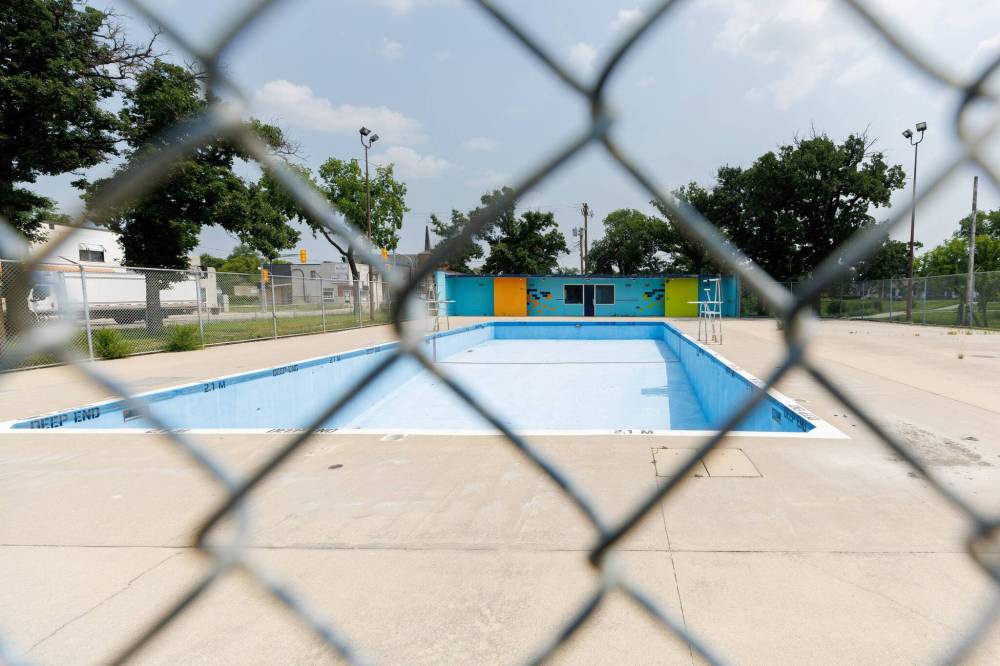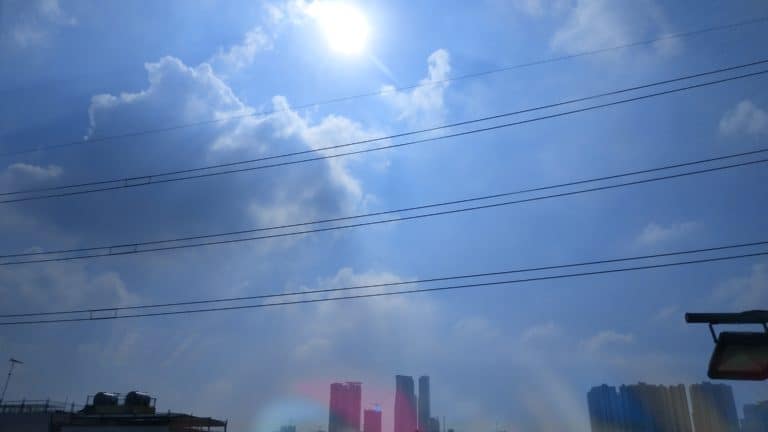
Lately city or provincial surveys about “our future needs” arrive in my inbox, but every question seems to contradict the last. Most of the surveys are about investing in future infrastructure, but nothing much about maintaining existing infrastructure amid Winnipeg’s dire financial situation. Read this article for free: Already have an account? To continue reading, please subscribe: * Lately city or provincial surveys about “our future needs” arrive in my inbox, but every question seems to contradict the last.
Most of the surveys are about investing in future infrastructure, but nothing much about maintaining existing infrastructure amid Winnipeg’s dire financial situation. Read unlimited articles for free today: Already have an account? Opinion Lately city or provincial surveys about “our future needs” arrive in my inbox, but every question seems to contradict the last. Most of the surveys are about investing in future infrastructure, but nothing much about maintaining existing infrastructure amid Winnipeg’s dire financial situation.

Take, for instance, the closure of wading pools and Happyland pool. Recent research shows that up to 20 per cent of school-aged kids have diagnoses of disabilities or special needs. For many, the sensory inputs of a splash pad are too hard.
The intermittent water spray, bright colours, shrieking and unpredictable sensations aren’t fun and cooling; it’s stressful. By contrast, if one’s first early interactions with water are in a quiet shallow wading pool, complete with toys and a lifeguard for those who wish to control how and what splashes, it’s an easier start for learning to swim. Manitobans have a lot of water to drown in.
Being comfortable in the water and taking swimming lessons saves lives. MIKE DEAL / FREE PRESS files The closed Happyland Pool at 520 Marion St. The pool was closed despite having years of useful life left in it.
However, the city closed Happyland pool, an outdoor neighbourhood pool with years of useful life remaining, due to lack of operating funding. When the community raised funds to meet the city’s stated amount needed to open the pool, suddenly the city’s projected costs skyrocketed. No matter what neighbours wanted, the pool stayed closed.
Kids without access to pools don’t learn to swim. A quiet neighbourhood pool is the perfect way to do it. Instead, I received an email asking for my opinion on a huge future expenditure, the new St.
Boniface Outdoor Aquatic Park. The survey asks if a huge waterslide is desirable. There was no check box to say: “Please maintain and renovate and fund the much less expensive wading pools and Happyland pool that already exists.
” The notion of the 15-minute city is relevant here, too. At heart, this is a great idea. My family would love to walk to amenities that were close by, rather than driving to swimming pools or other community facilities.
Meanwhile, instead of residential compost pickup in densely populated areas, we’re offered locations where we can drive our cars to drop off compost, the opposite of good environmental choices. This doesn’t seem like the “15-minute city” plan. Yet, the city hall debates are about providing more infrastructure to new suburban development on the city outskirts.
These suburbs, created for cars, require everyone to drive. They don’t densify the city. The proposed, expensive new recreation facilities in new areas pull resources out of the core Winnipeg neighbourhoods.
When people moved to these new cul-de-sacs, they were far from city amenities. That’s what they chose, but denying people who chose to live close to downtown easy access to those same recreation amenities, because of poor maintenance and upkeep, makes no sense. We’ve also got bigger problems.
Reports indicate that the north end sewage treatment plant is in desperate need of replacement. We could run out of capacity in four to six years. This sewage treatment facility serves 60 to 70 per cent of Winnipeg.
Yet, our federal and municipal officials want to change regulations to quickly boost infill housing. Years ago, I wrote about infill, suggesting that increased housing without upgrading sewer systems could result in disaster. Now, it’s an imminent reality.
Instead of renovating or replacing existing decrepit housing at a 1:1 ratio, we must boost housing density due to our current housing crisis. Yet, without immediate sewage facility upgrades, let’s be honest — where will all the poop go? Our mayor got elected on promises to expand Kenaston Boulevard/Route 90 and improve suburban commuters’ lives. While studies indicate this will be expensive and offer dubious improvement for commuting traffic, now we can’t afford to fix what we’ve already got.
Arlington Bridge must be replaced. The underground access to Portage and Main crumbled. The pedestrian bridge at the Forks is unsafe.
Now we hear that Omand’s Creek bridge must be replaced. What will happen next? Practical, budget-conscious infrastructure decisions, like reopening Portage and Main to pedestrians above ground, must happen quickly to provide comparable services to replace disintegrating infrastructure. Yes, good government must make plans for the future, but not at the expense of today’s basic facilities.
Winnipeg Jets Game Days On Winnipeg Jets game days, hockey writers Mike McIntyre and Ken Wiebe send news, notes and quotes from the morning skate, as well as injury updates and lineup decisions. Arrives a few hours prior to puck drop. Upkeep, maintenance and renovation of what we have already, in the city core, must be a priority.
Keeping open inexpensive outdoor pools now means that today’s kids get to swim while planners imagine the future’s huge aquatic centre. The tax base is higher in the middle of the city. Those who choose to live in the city centre must receive access to some of the same amenities as those who live in suburban enclaves.
Our city should focus on raising taxes for maintaining what we have rather than dumping millions of dollars into future landmark attractions. Leave the big aquatic park with water slides to private development. Sustain neighbourhood pool swimming lessons, bridges that are safe to cross and sewage that goes into the pipes and not the river.
Sometimes, having the city-dwellers’ basic needs met, like access to water to drink and swim in, proper sewage and safe passage on the streets, must come ahead of fancy “wants.” Living close to downtown should give us access to every amenity and not a river that smells like the toilet. If we don’t pay for the basics, like fixing the sewage treatment facility, that “river toilet” is where we’ll be.
Joanne Seiff, a Winnipeg author, has been contributing opinions and analysis to the Free Press since 2009. Advertisement Advertisement.











